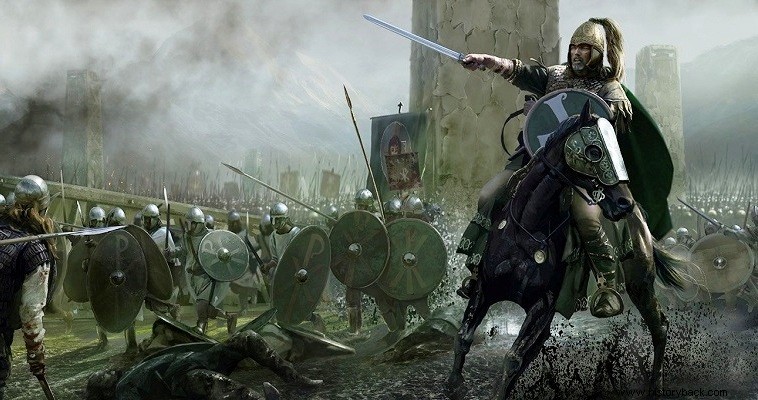
In 588 AD it was not a pleasant year for the fortunes of the Byzantine Empire. Missteps by the emperor Maurice had brought the army of Asia Minor to a standstill while the newly appointed general Priscus had fled to escape before he could well take over.
In this state of chaos the army elected the Duke of the Phoenician province of Lebanon Germanus as commander. Mauritius had meanwhile ordered General Philippicus to take command. But before he arrived the Sassanid Persians, taking advantage of the chaos, had invaded the Byzantine lands and they had attacked the city of Constantia (Antioch of Mesopotamia – today's Viransehir in present-day Turkey).
Not having to wait for help General Germanos he tried himself to quiet his men and make them worthy of fighting by instructing them. He managed to regroup a force of only 1,000 men with whom, however, he managed to lift the siege of Constantia, as the historian Theophylaktos Simokattis reports.
Then a force of 4,000 Byzantines raided Persian territory, but without being able to achieve any significant results. In the meantime, a representative of the emperor arrived in the camp, the misunderstandings were resolved and calm was restored.
So the German moved with his army, the strength of which we do not know, north towards Martyropolis (the present-day Silvan of present-day Turkey) invading the Sassanid-controlled province of Arzanini . The Persians reacted by sending the military commander of the region, General Maruza, to the area.
The German, either because he did not have enough forces, or, more likely, executing a strategy, retreated towards Martyropolis. There, however, making a surprise offensive return, he attacked the Persians with their army, who thought that the Byzantines had fled. The strategy was completely successful, Maruza's army was disbanded.
He and many of his officers were killed while 3,000 of his men were captured. All but 1,000 were killed in battle. After the victory, the German sent the head of the Persian general and the war banners he captured to the queen of the cities.
